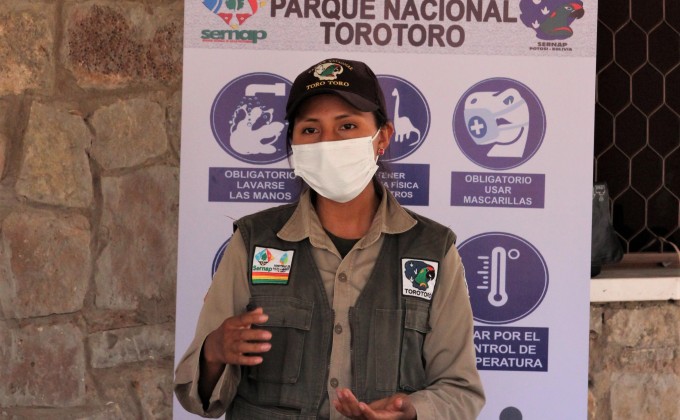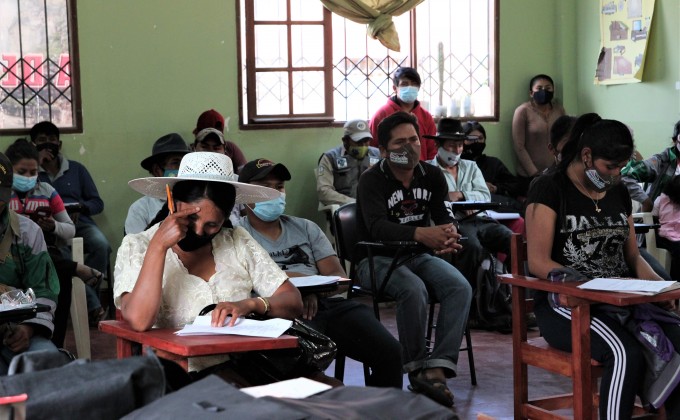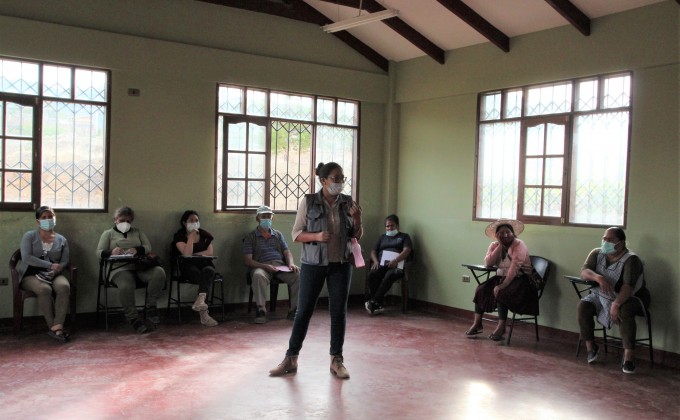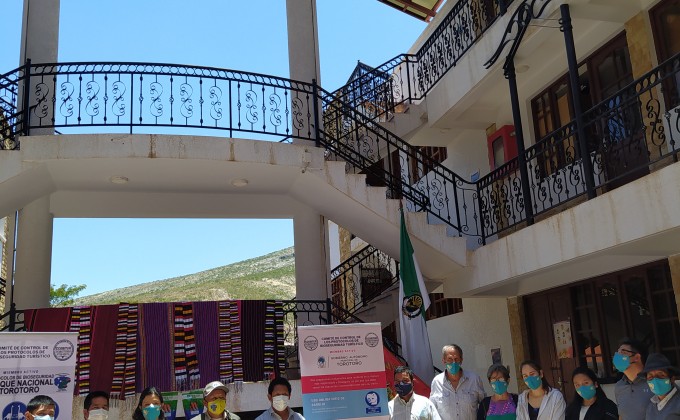



Article published bu CECI Bolivia
In March 2020, when the COVID-19 pandemic spread across South America, the Bolivian government closed its borders and imposed a strict quarantine on the whole country. The municipality of Torotoro, located in the middle of the Torotoro National Park in the department of Potosí, thus found itself isolated. No more tourists were coming in to discover its unique rock formations or admire its fossilized dinosaur footprints. For a town that heavily depended on tourism, this was a big blow. Tour guides, restaurants, hotels, all found themselves overnight without sources of income.
It is to face this crisis and mitigate its consequences that CECI Bolivia and its partners quickly implemented a series of actions to provide an immediate response in terms of safety measures (such as wearing a mask and hand washing) but in order to properly prepare all sectors for the imminent return of tourists. Gradually, travel resumed within the country. A new paved road linking Torotoro to Cochabamba, the nearest city, promises to greatly increase the number of visitors.
Led by CECI in Bolivia and its local partner CISTUR (Centro de Investigacion y servicio en turismo), the project also involved the municipal government of Torotoro, the Ccobitur coordination (Comité de control de los protocolos de bioseguridad turistico de Torotoro), the guides’ association of Torotoro, the Torotoro Municipal Park, the Charcas Superior Technical Institute and the National Service for Protected Areas.
The project includes workshops on security measures, but also a section devoted to research in order to assess the evolution of the pandemic in the region, involving a team of doctors. About a hundred participants, half of whom are women, have been trained to be better able
to safely receive clients.
As the municipality strives to become certified as a biosecure destination, the project also included several round tables on the matter, exploring ways to apply such a certification in practice.
Walking through the town’s small cobblestone streets, we can already see the results of the project. The businesses have installed information signs with dinosaurs washing their paws or wearing a mask. There is a hand-washing or sanitizing station at the hotels’ entrance. Like everywhere else, changing people’s habits so that they respect safety instructions is not easy. Some resist, others do not really believe in the gravity of the situation. Nevertheless, the residents’ resilience and their need to be ready for the arrival of tourists are proving to be real drivers of change.
These actions were undertaken through the “Strategic actions and rapid response to the COVID-19 crisis” project, with funding provided by the Canadian Ministry of Foreign Affairs.